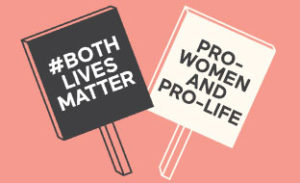So can you really be sent to prison for having an abortion in the UK?
Yes.
Does it happen often?
No, in fact almost never.
There have been two cases of a person being sent to prison in the last ten years and both occurred in England. In a more recent case in Northern Ireland a person was given a suspended sentence. In that same 10 year period approximately 10,000 lives are being lived by Northern Ireland not having the 1967 Act, and tragically almost 2 million lives have been terminated under that Act. This perhaps puts the situation into context.
Across the UK, in England, Wales, Northern Ireland and Scotland, a woman or man can be sent to prison for procuring an illegal abortion. But if it’s so rare, why then should the criminal legislation remain?
The criminal law is seen as a backstop. As we all now know from Brexit, the backstop is the last line of defence when all else fails. In the case of abortion the backstop is provided by the Offences Against the Person Act 1861. Opponents complain that law is antiquated and needs to go.
The problem is that though it has been amended, this same Act is still used every day in the courts for prosecuting assaults and personal injury offences. The reason it hasn’t been done away with is that the offence of punching someone today is the same as it was in 1861. We bring in new laws to deal with new crimes, but the old laws work perfectly well, for crimes that have been around for a long time.
Two recent cases, one from Northern Ireland and one from England, show why this criminal law is still appropriate and how it operates in practice around abortion.
In July 2014 a woman was putting out rubbish and found a “full wee proper baby” in the bin. Her housemate had been pregnant and she realised what had happened. She was persuaded not to say anything initially but after a week the guilt was eating her up and she rang the police for advice. After an investigation the Police decided there was enough evidence to send a file to the Public Prosecution Service (PPS). The PPS decided that there was enough evidence and it was in the public interest to proceed with a prosecution. The woman ultimately admitted two offences – procuring her own abortion by using a poison, and of supplying a poison with intent to procure a miscarriage. She was was given a three-month jail sentence, suspended for 12 months.
In July 2012, Sarah Catt took an abortion drug when she was full term. She had had one abortion previously and was having an affair at the time which her husband was unaware of. She had a scan at 30 weeks confirming the stage of her pregnancy. The judge found that she had ordered drugs online and made a “deliberate choice in the full knowledge of the due date for the birth of your child, to terminate the pregnancy at term or very close to it.” She subsequently buried the body and refused to disclose its location. The judge declared Sarah Catt to be of sound mind, well educated and with previous experiences of pregnancy and abortion, he found no real mitigation, no remorse and indicated the need for a deterrence. He sentenced her to eight years in prison for robbing the near term, baby boy of life.
These are two very different but equally tragic stories. The law may sometimes be termed as a blunt instrument, but here we see the ability of the law to seek to act justly and also show mercy. The law in sentencing sought to recognise the actions taken by and the harm done to, the life of both the mother and her child in each case.
Abortion advocates frame it as women being criminalised for simply accessing “healthcare”, comparable to getting a bunion removed. They see abortion solely through the lens of “my body my choice”. For them the unborn human being has no right to legal protection or status and if the woman chooses to abort her own child at any stage that should be a valid and legal choice. In their eyes there is no need for justice, for a preborn life that was terminated, because only the life of the woman matters.
But if the law removes protection from any human being, could that ever be considered compassionate or humane? We desperately want to see both women in crisis and their unborn children treated well. Decriminalisation does not solve the problems which create a crisis pregnancy and can force a woman to feel she has no other choice, than to terminate her own preborn child.
If a young mother feels her only choice is to steal food to feed her children she has been failed by society. The answer to her circumstance is not for theft to be decriminalised. It is to address the underlying issues like poverty, isolation and social deprivation which have led to this situation. Similarly the answer to pregnancy crises, is not to decriminalise abortion – it is to deal with the issues which make abortion seem like the only or best answer.
One of the reasons the criminal law exists is to protect individuals and the wider community from harm. The criminal law is the proper and expected protector of human life and not civil law, which deals with things like parking fines and contractual disagreements. The criminal law currently protects a child’s doll from theft and destruction, similarly a wild hawk’s egg – it is entirely appropriate that it continues to protect an unborn human baby from wilful destruction too.

